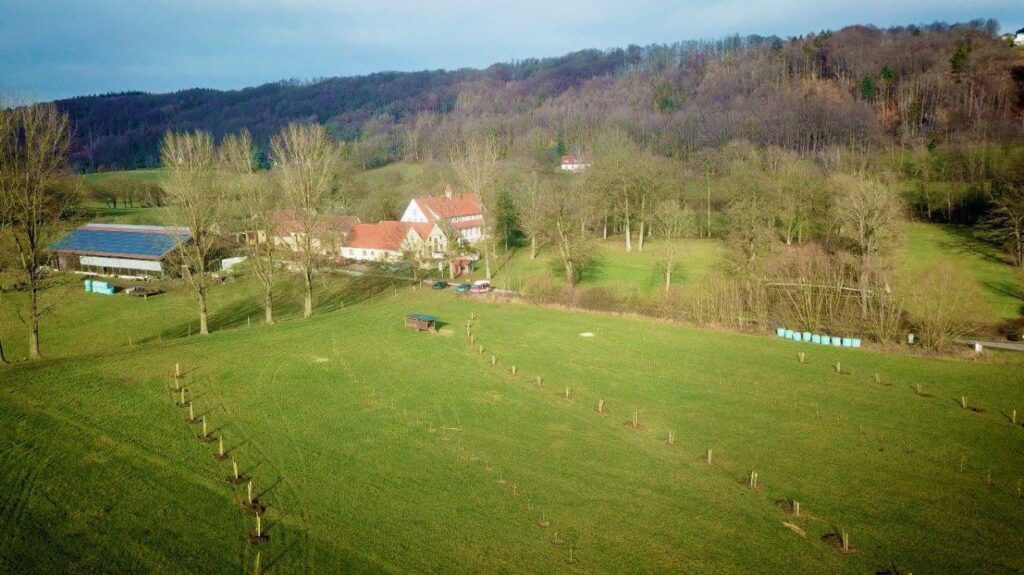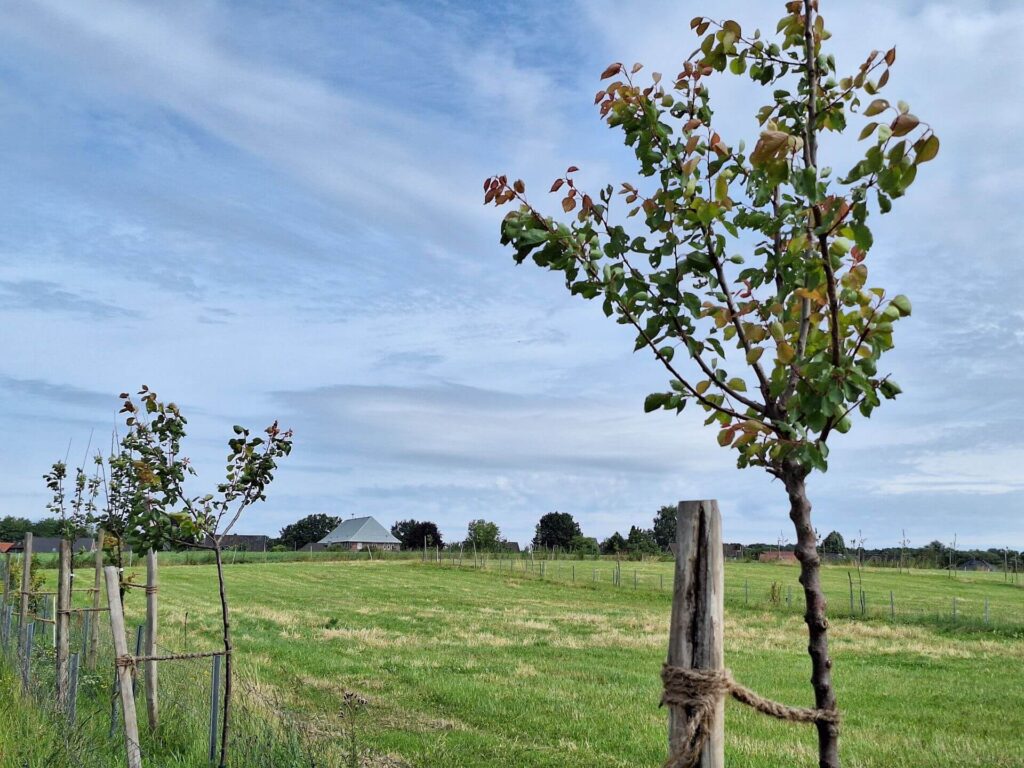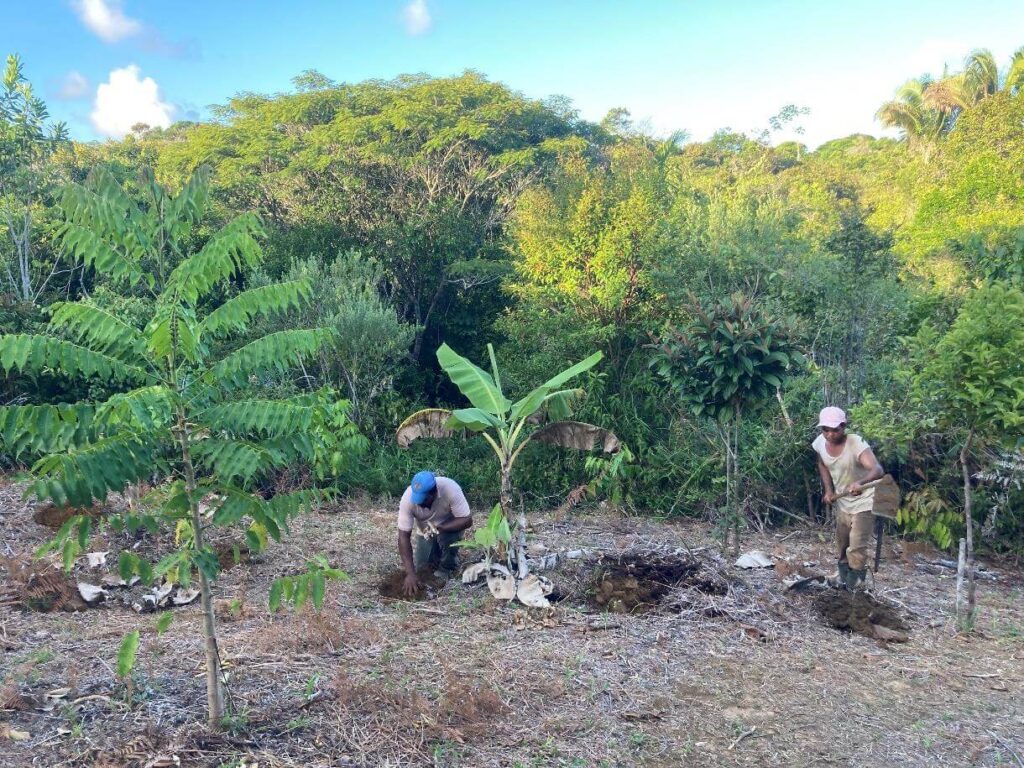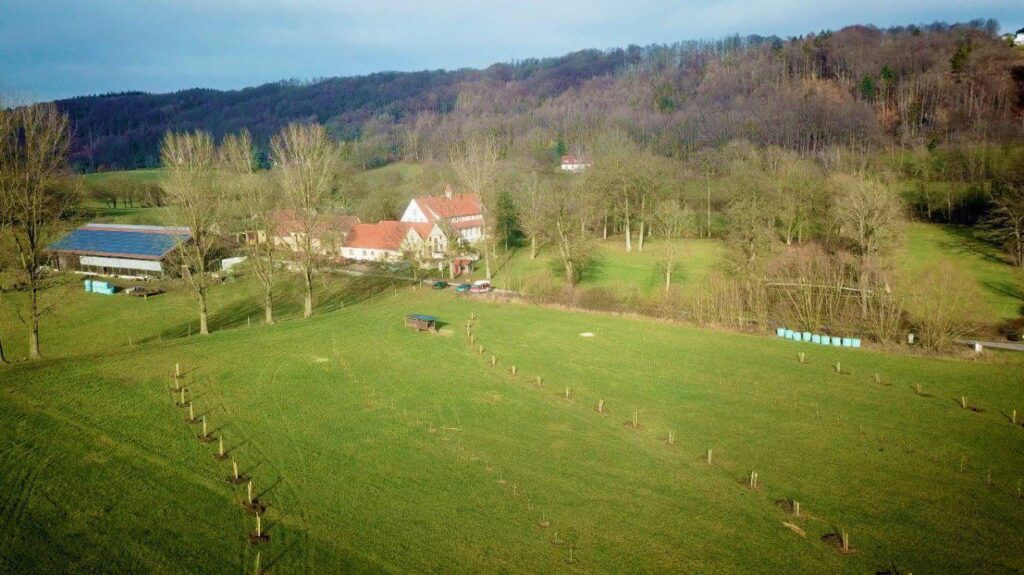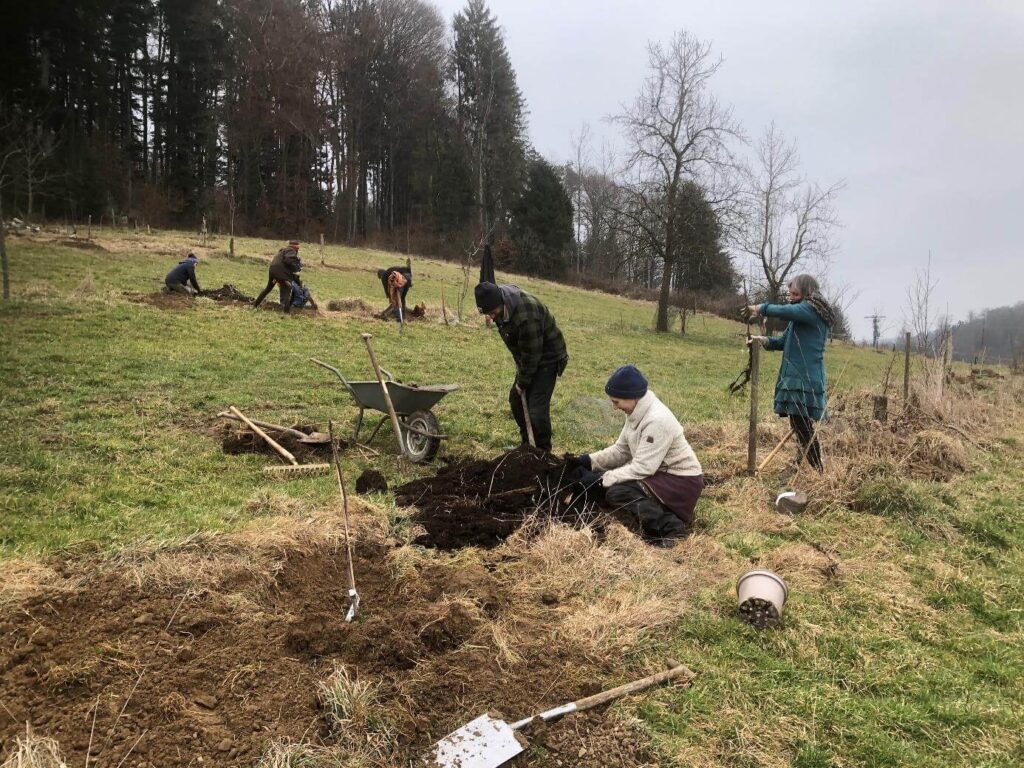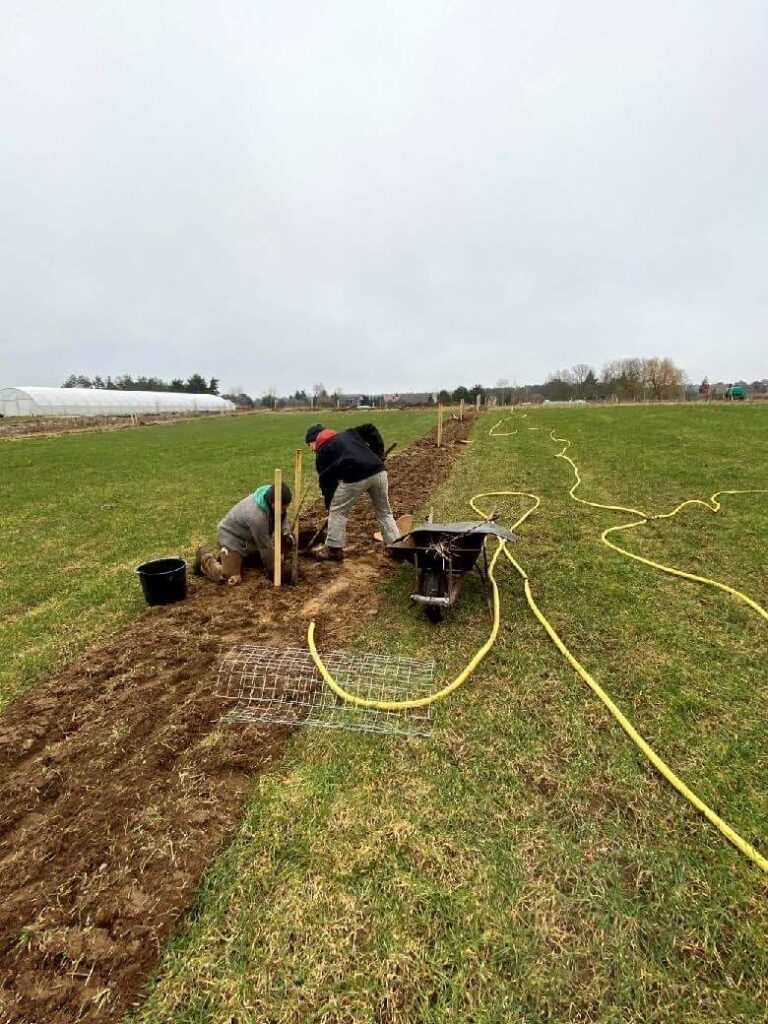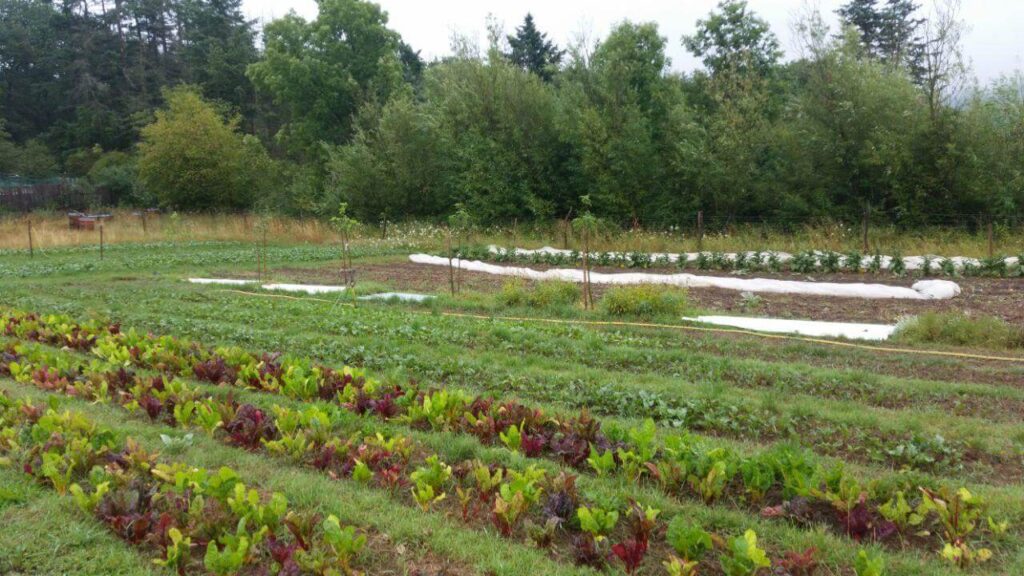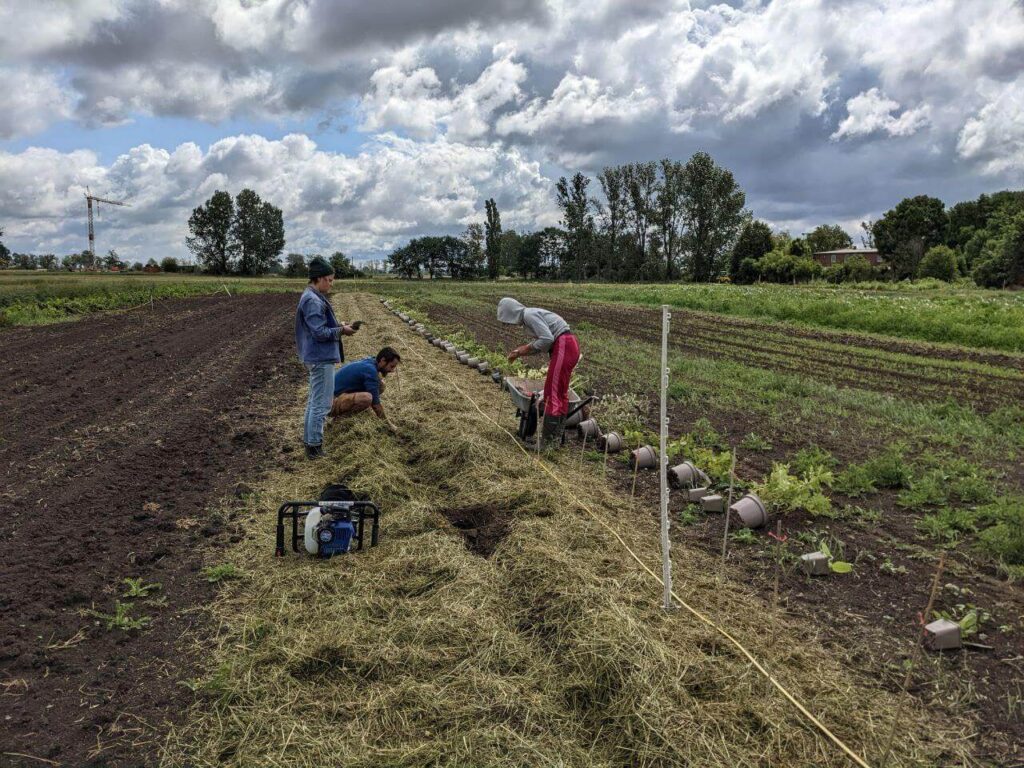Promotion of Agroforestry Systems
Agroforestry is a multifunctional form of land use where trees and/or hedges are planted on the same area as agricultural crops. This integrates ecological goals into agricultural practices and achieves positive agroecological interactions. Since June 2022, the Daniel Schlegel Umweltstiftung has been supporting the planting of multifunctional agroforestry systems.
The positive effect of agroforestry is significant. Agroforestry systems can also be combined with grassland or grazing/livestock farming.
Purely conventional agriculture, where large-scale monoculture crops are grown with extensive use of pesticides, has devastating effects on the environment, including, among others:
- Loss of fertility and erosion of soils
- Pollution of water and air
- Loss of biodiversity
- High susceptibility to infestation
- Increased consumption of energy and resources
Agroforestry systems could be the solution to these problems. They are implemented in a variety of forms and offer a more sustainable and environmentally friendly alternative to conventional agriculture. They help to protect the soil and the environment, as well as to better adapt food production to climate change. While agroforestry is a complex agricultural system, it offers a number of advantages:
- High diversity of structures and species due to the various tree and shrub species and interconnection of biotopes
- Improvement of the microclimate and the availability of nutrients
- Improvement of soil health and fertility (enrichment with organic matter)
- Increasing water holding capacity and conservation of water as a resource
- Reduced nitrate pollution of groundwater
- Creation of diverse habitats (meadow orchards)
- Production of a variety of products such as fruit, honey, animal products and vegetables possible (in the case of meadow orchards)
- Climate adaptation: reduction of evaporation and protective effect for arable crops against strong winds and thus against soil erosion
- Reduction of slope lengths and thus water erosion protection, wooded strips act as erosion barriers (when arranged parallel to the slope)
- Long-term carbon storage in the biomass and in the soil, e.g. through foliage input from the woody plants.
- Trees provide shade and cooling in summer – Protection from wind in the winter (as well as contributing to animal welfare when grazing).
- Closing of nutrient cycles and even distribution of substance inputs in the area (when grazing)
- Reduction of infestations and diseases
- Less use of fertilisers and pesticides
As a foundation, we are convinced of the various positive effects. In light of rising temperatures and droughts, environmental protection and agriculture must no longer work against each other. If temperatures warm up by a few degrees, many crops will otherwise no longer be cultivable in Germany in a few decades. The investment and maintenance costs for agroforestry systems are very high, especially in the beginning, and at the same time there is a lack of adequate support programmes from the government. This is why the foundation supports the planting and maintenance of selected agroforestry systems. Planungsbüro Triebwerk is one of our main partners in the implementation of this project.
